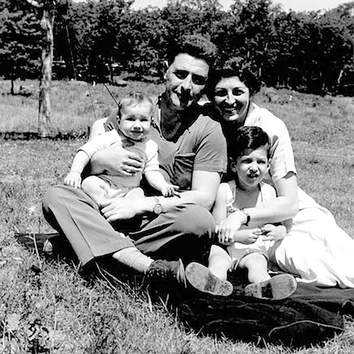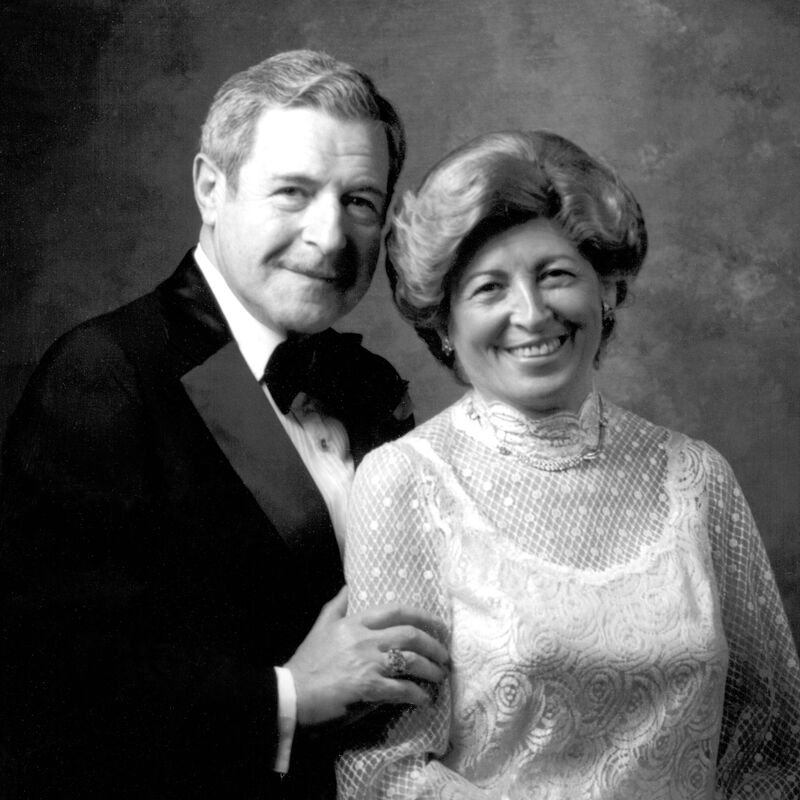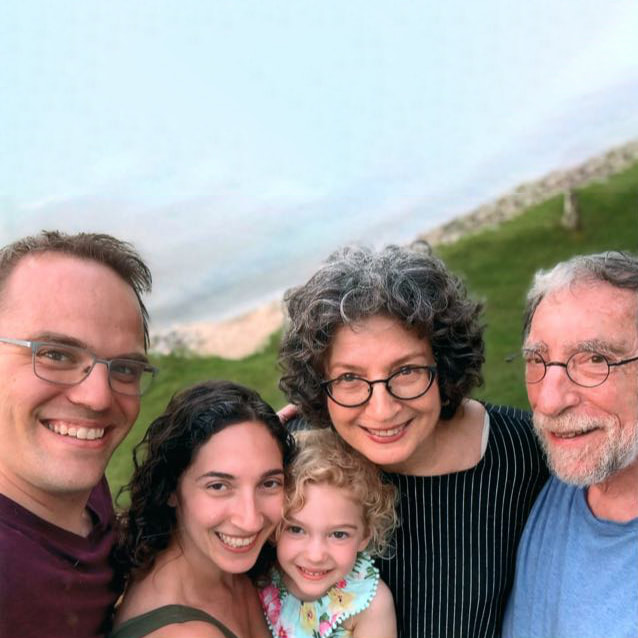Chapter 14: OsmosisBy Fran Lewy Berg, daughter of Alfred and Irene Lewy
My life is shadowed by a history I am supposed to know nothing about. My parents did not talk about the Holocaust. It was in the air that we breathed. My brother and I absorbed it by osmosis. I don’t know a lot about my parents’ experience during the war. But I can tell you what I lived. Alfred Lewy My father, Alfred (Fredek) Lewy, used to call me Lalka, which is Polish for Doll. When I was no longer a child, we continued to indulge in a ritual that went back to my infancy. Both of us standing, he would sway me in his arms to an old Polish lullaby about two noisy kittens. I remember it as: Aaaaaah Aaaaaah Kotki dva Shara boo-a Ovid va Dola chowa Nara sue Naro bewa How-a sue Even though it was more fitting for someone much younger, my father and I would rock to the melodious chant, and I never squirmed away. I knew enough to cherish it. My parents talked between themselves in Polish but never to us children, as they wanted to purge themselves of that country and not contaminate the next generation. Polish was reserved for my father’s lullaby and for names of endearment. My mother called me Francheska and Francelina Pumpalina. But the nickname that most warmed my heart was when my father called me Lalka. After the war my parents left the small town of Jarosław, where they’d grown up, for the promise of a new life in Canada. My father arrived in Montreal with two gold coins sewn into the waistband of his pants. The first notice for work he came upon was “Leather cutters wanted. Experience necessary.” My father had none, but he took the job. The food he put on the table he paid for with badly cut up hands. Thirty-five years later he established The Irene and Fred Lewy Youth Center in Jerusalem for disadvantaged youth. Supporting Israel meant everything to my father. He would say if it had only existed earlier, there would have been a nation to welcome the Jews of Hitler’s Europe. If there was a next time, Jews would have a homeland to escape to. In Montreal, my father achieved the life of a successful real estate developer. As president of B’nai B’rith, he won humanitarian awards. A large man with shockingly thick hair, my father was handsome in a European sort of way. There was a quiet elegance to him. He always rooted for the underdog. While he was capable of red-faced rage, he had a softness and tenderness that belied his imposing, at times intimidating, exterior. I saw his eyes melt sometimes when he looked at me He was an enthusiastic and colorful storyteller, his tales punctuated by a twinkle in his eye. Yet, as gifted a storyteller as he was, he could not tell me his own story. When I became a doctoral student in psychology, I wanted to write my dissertation on children of survivors. My father bellowed, “I forbid it!” |




